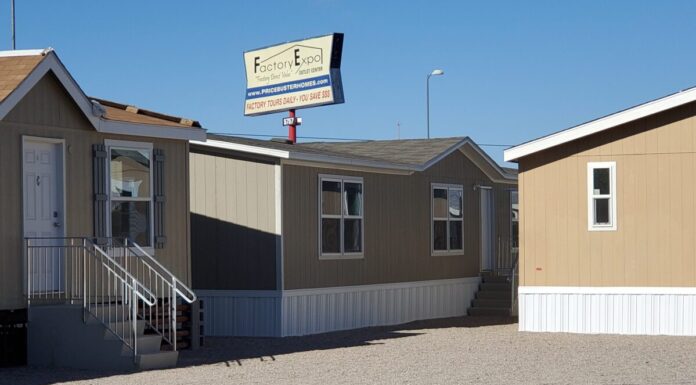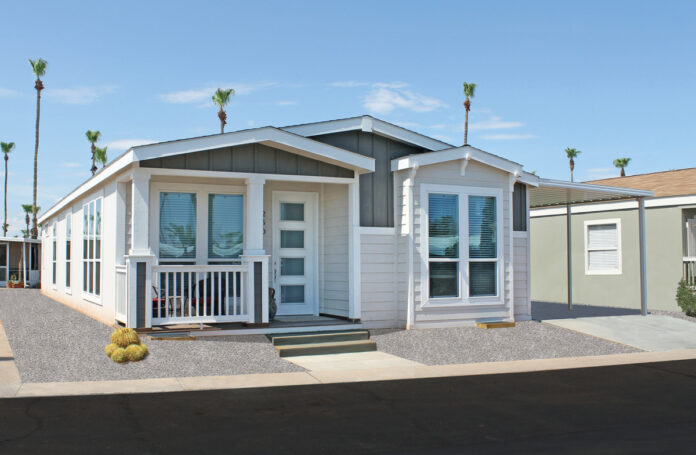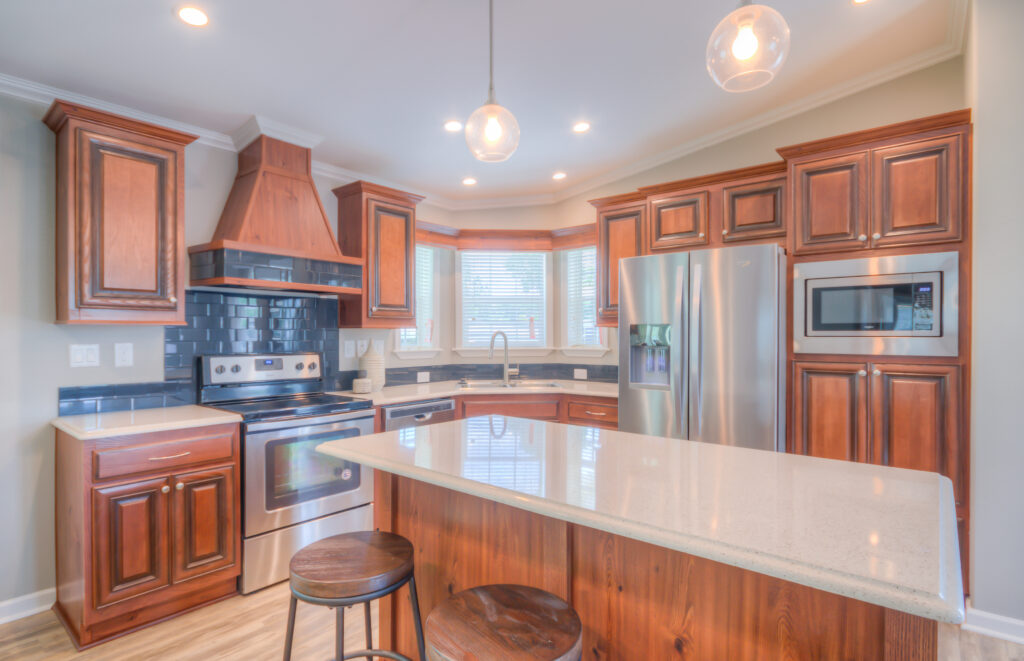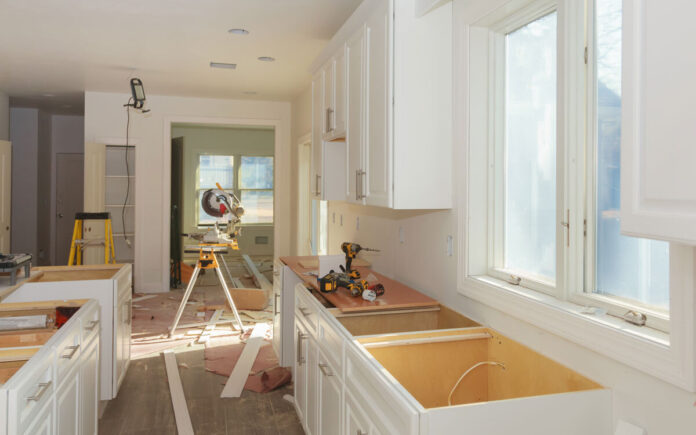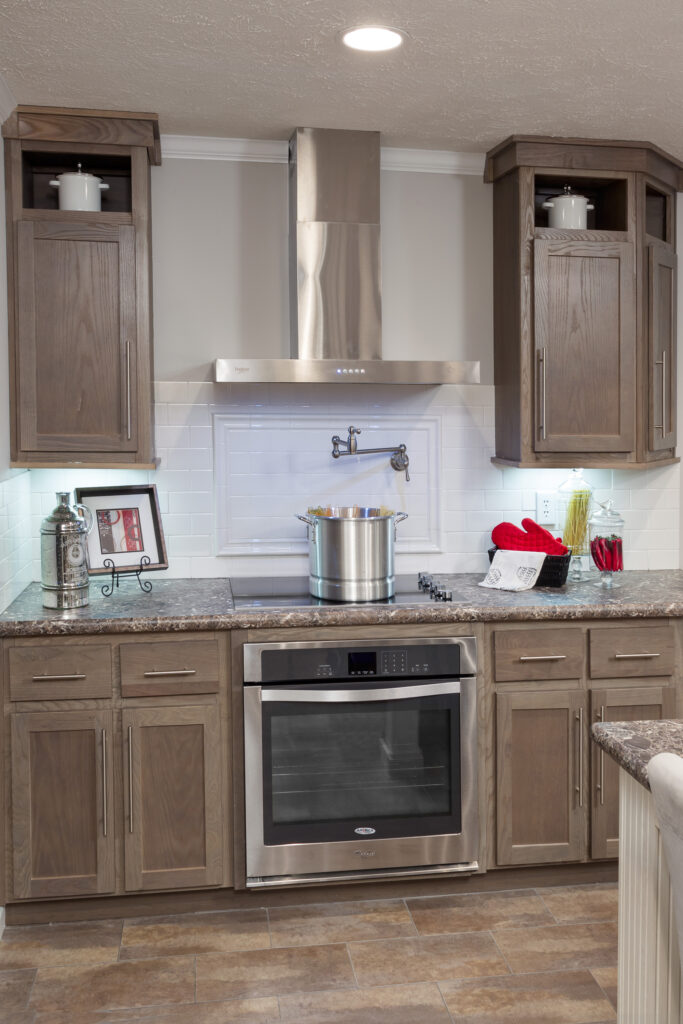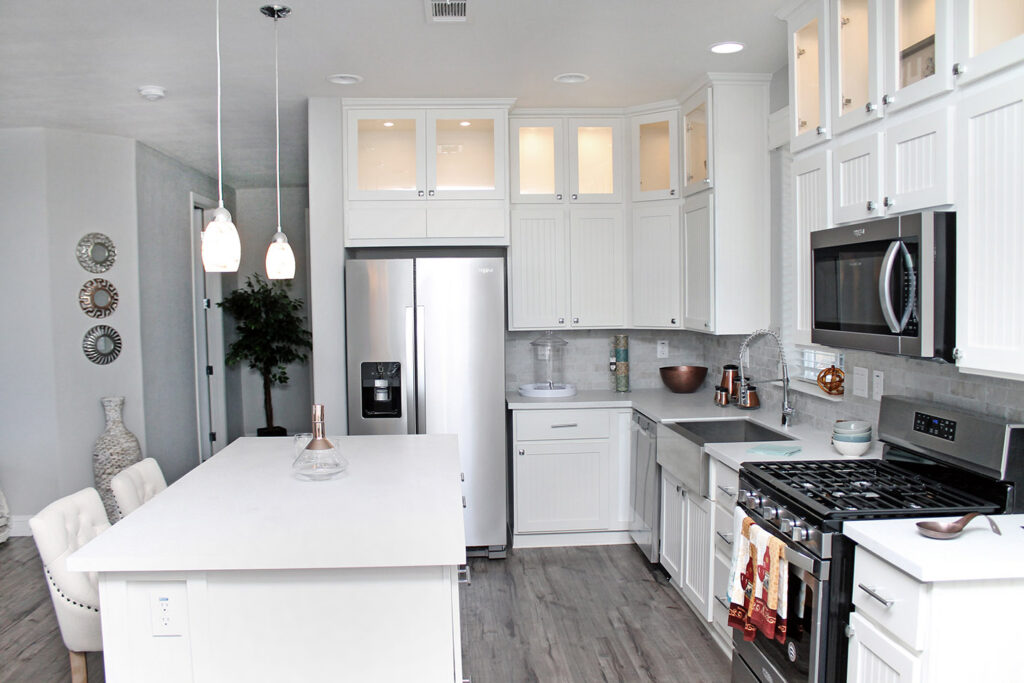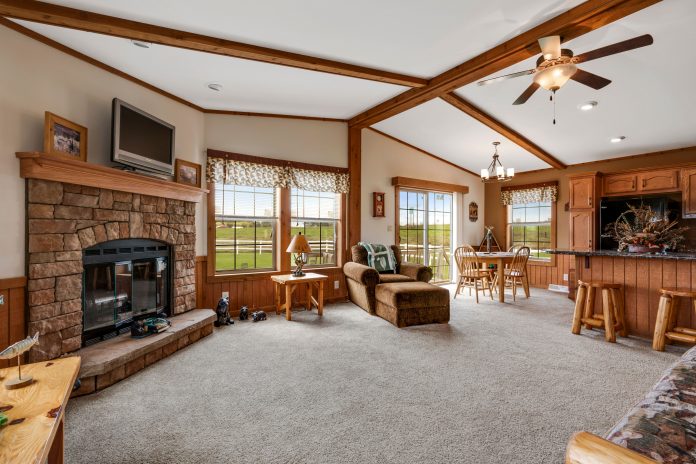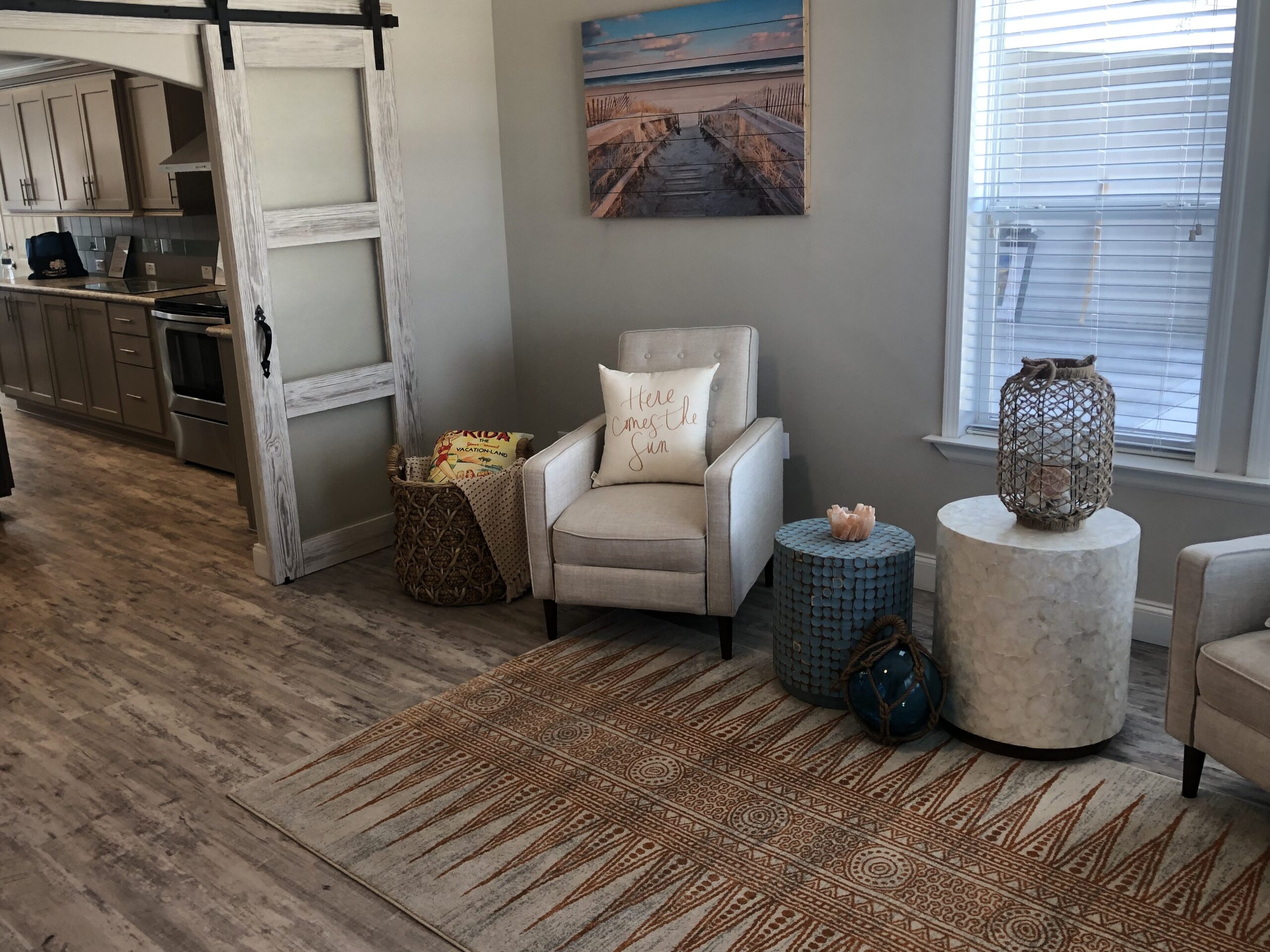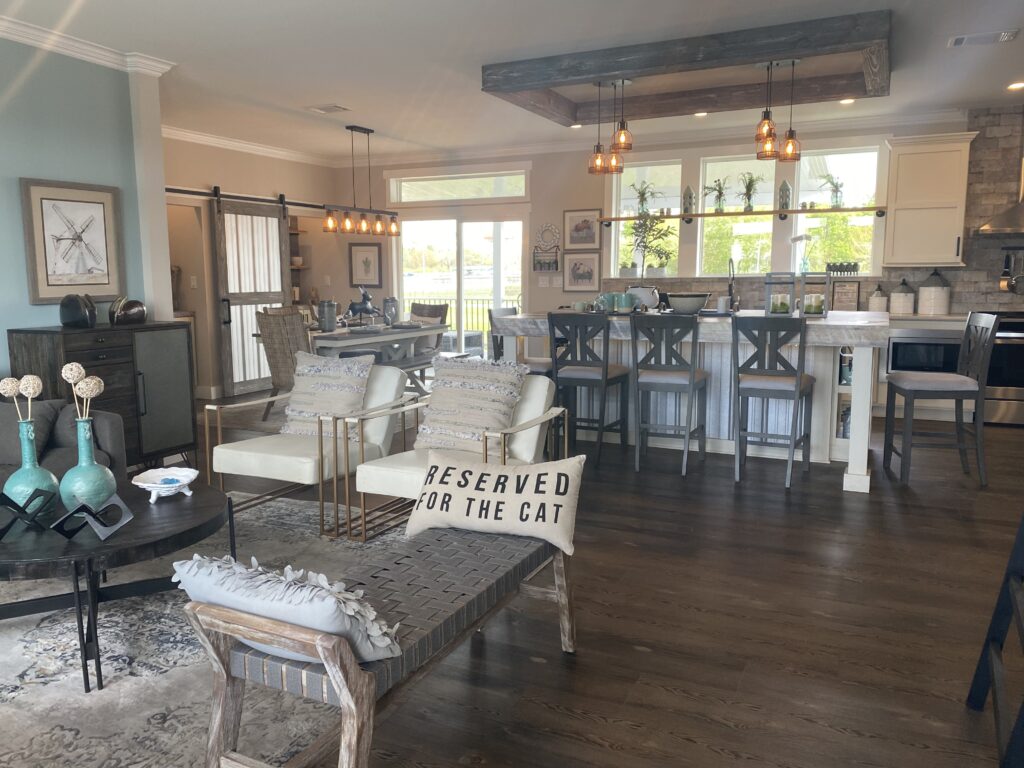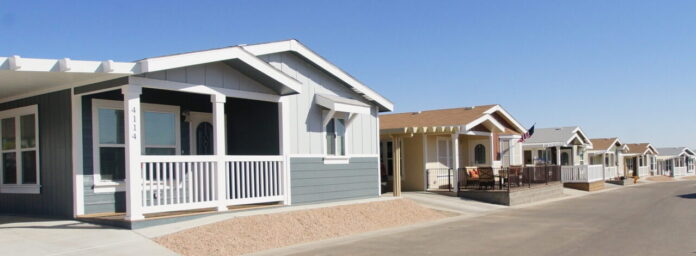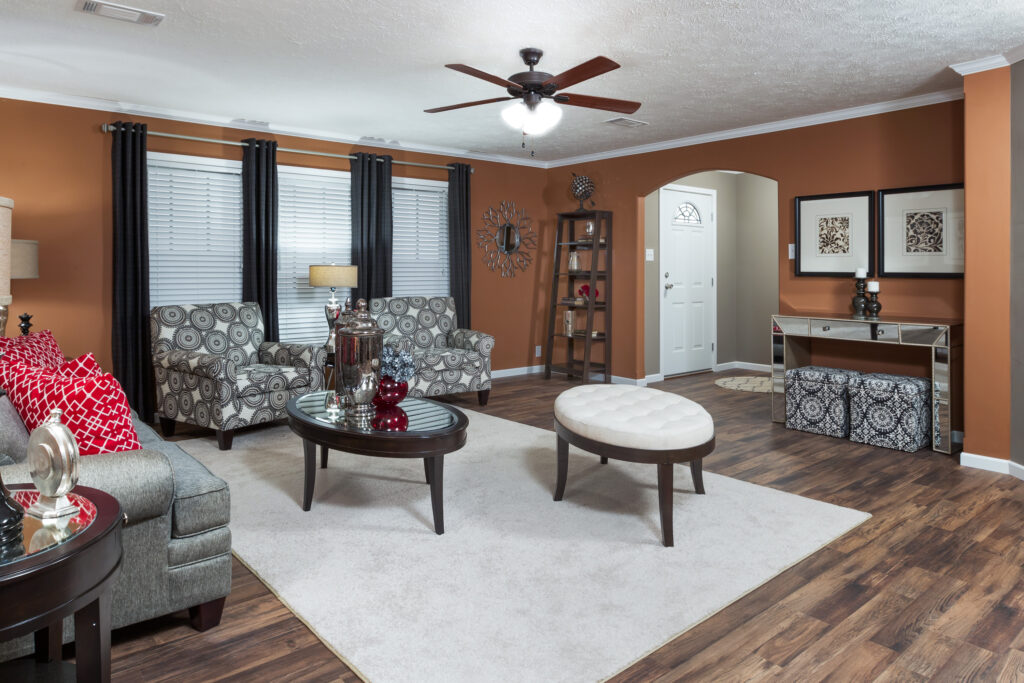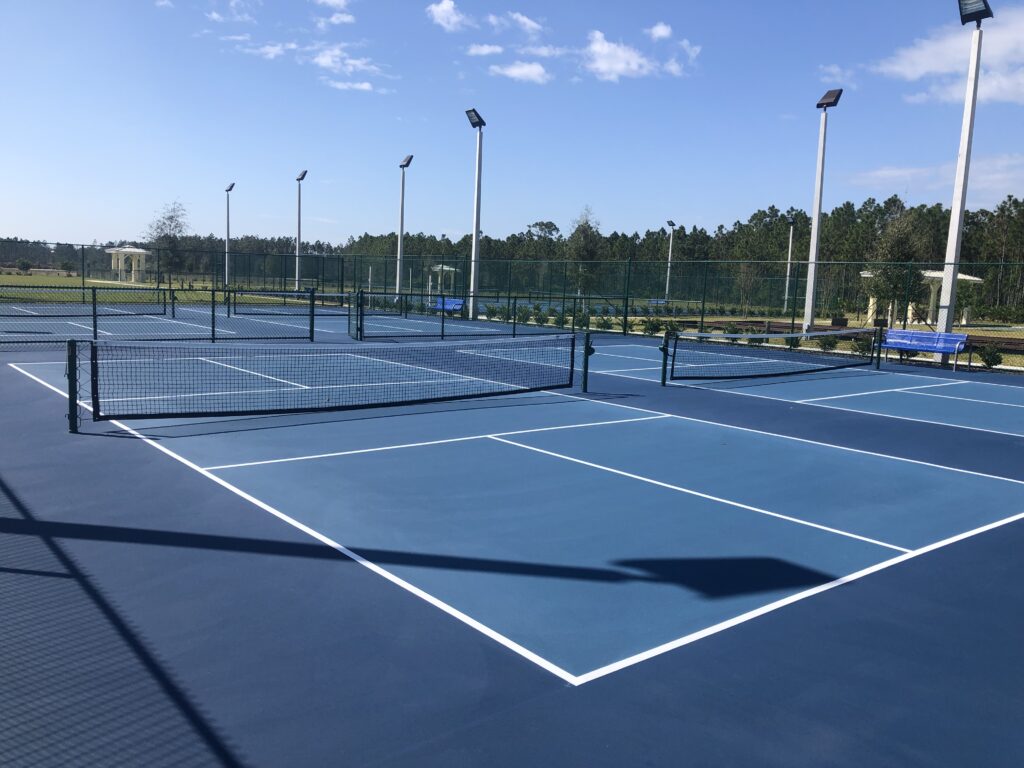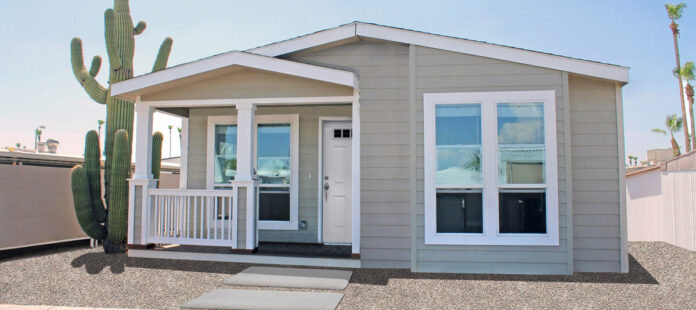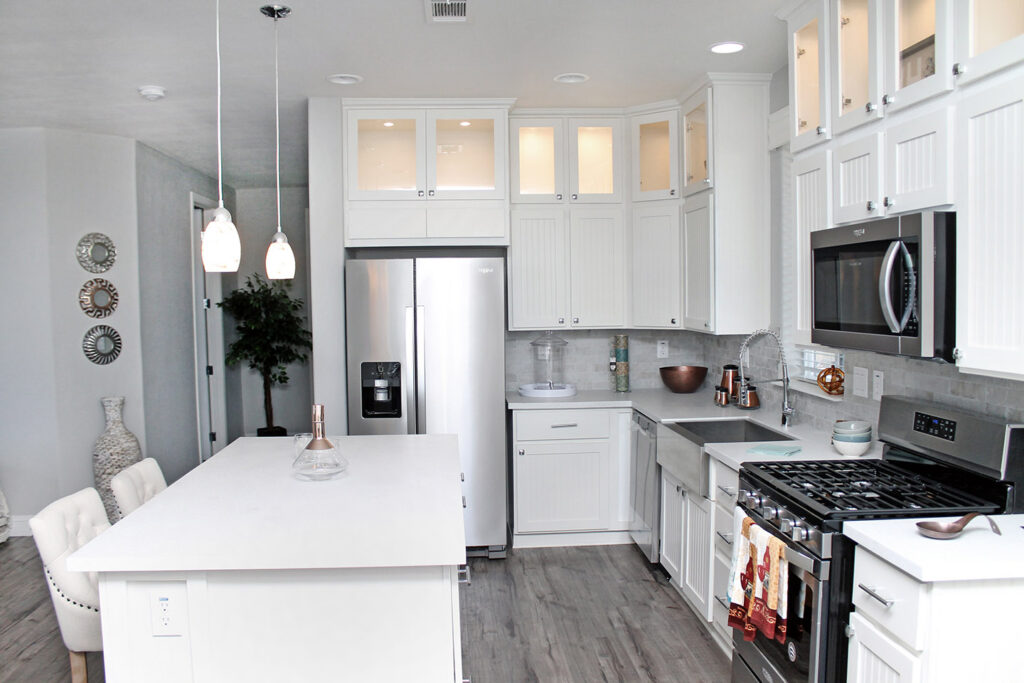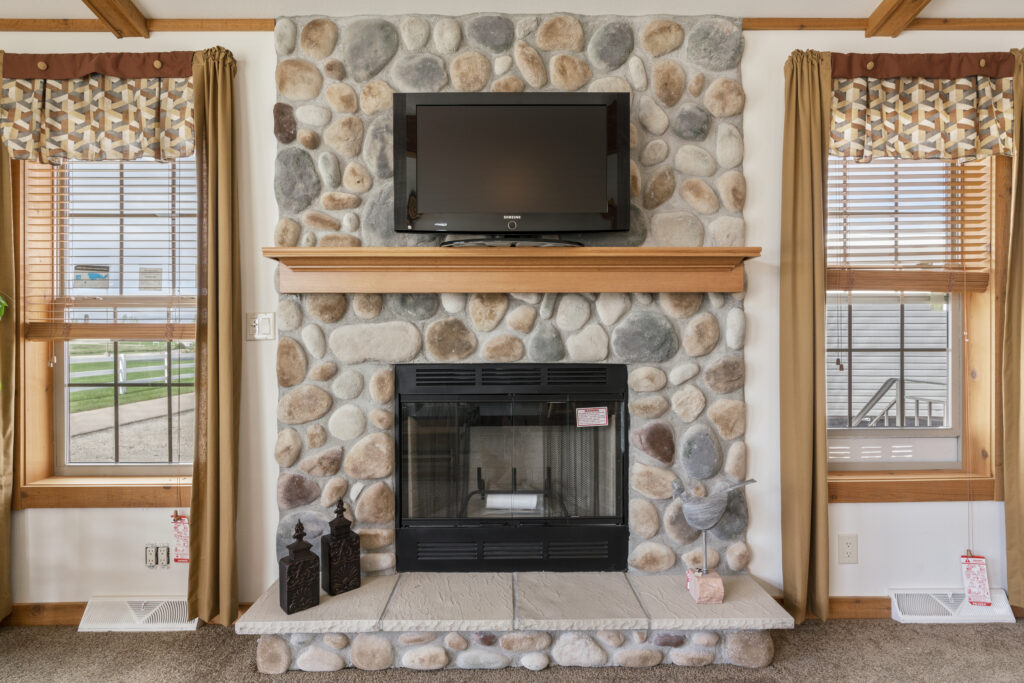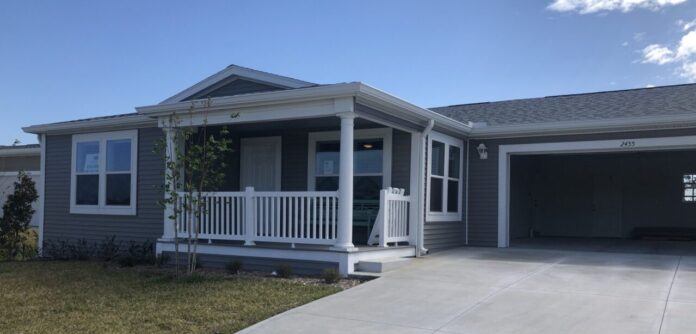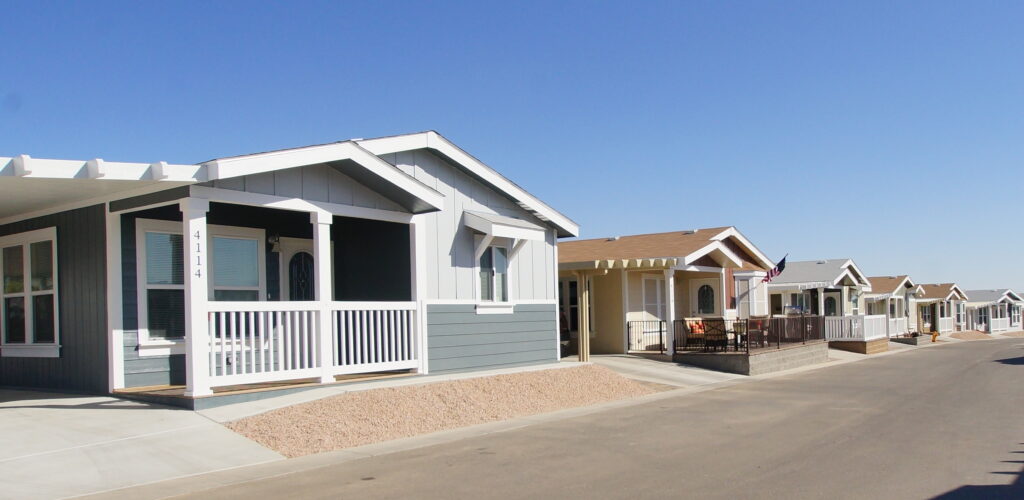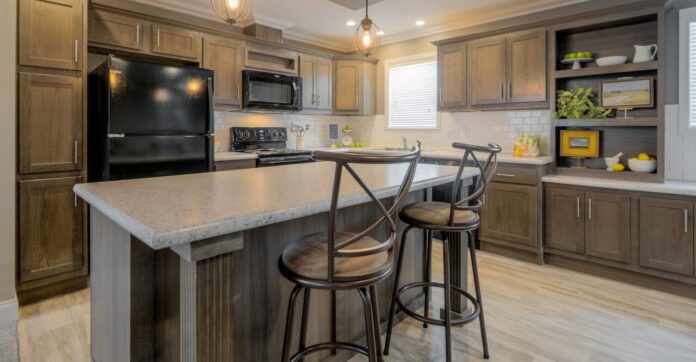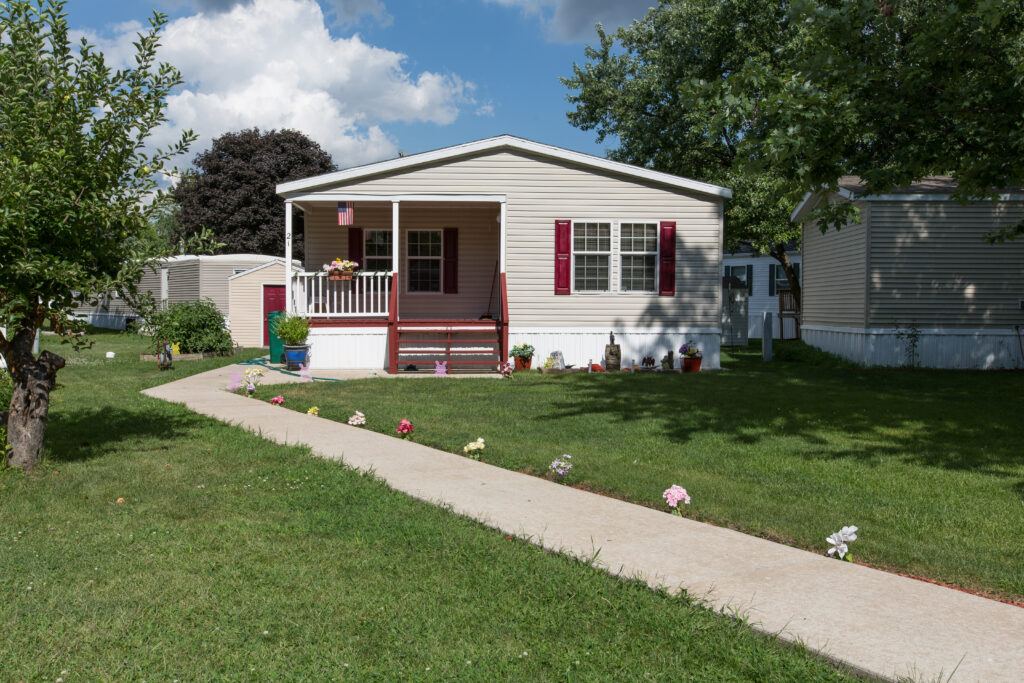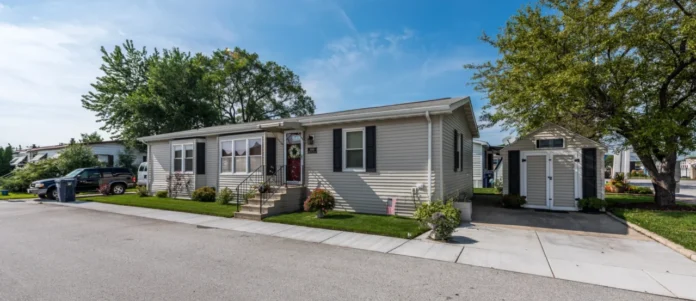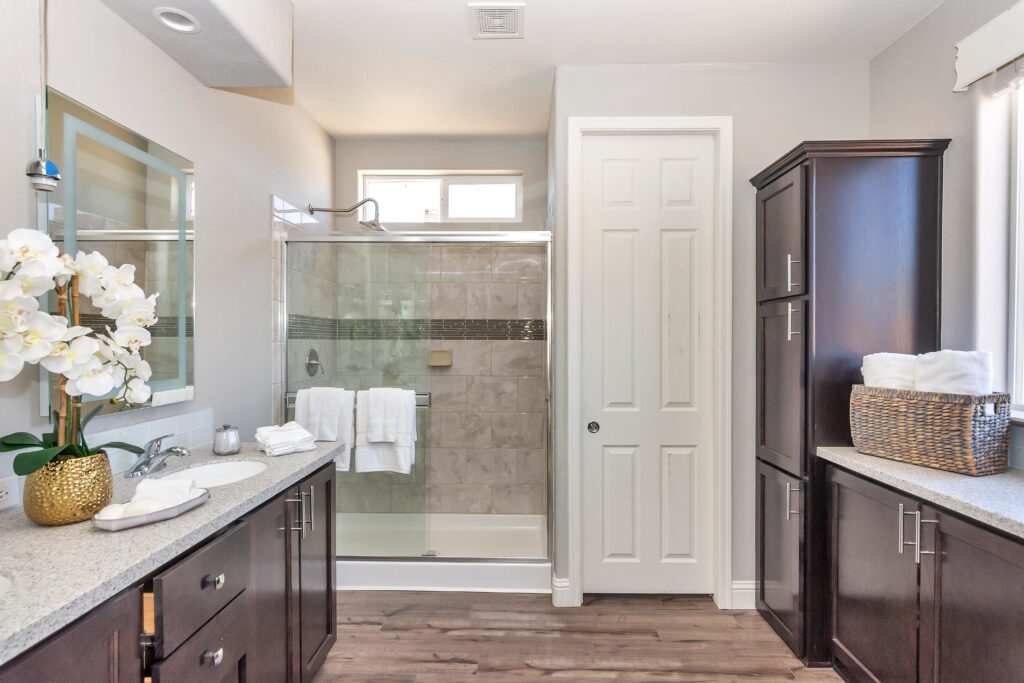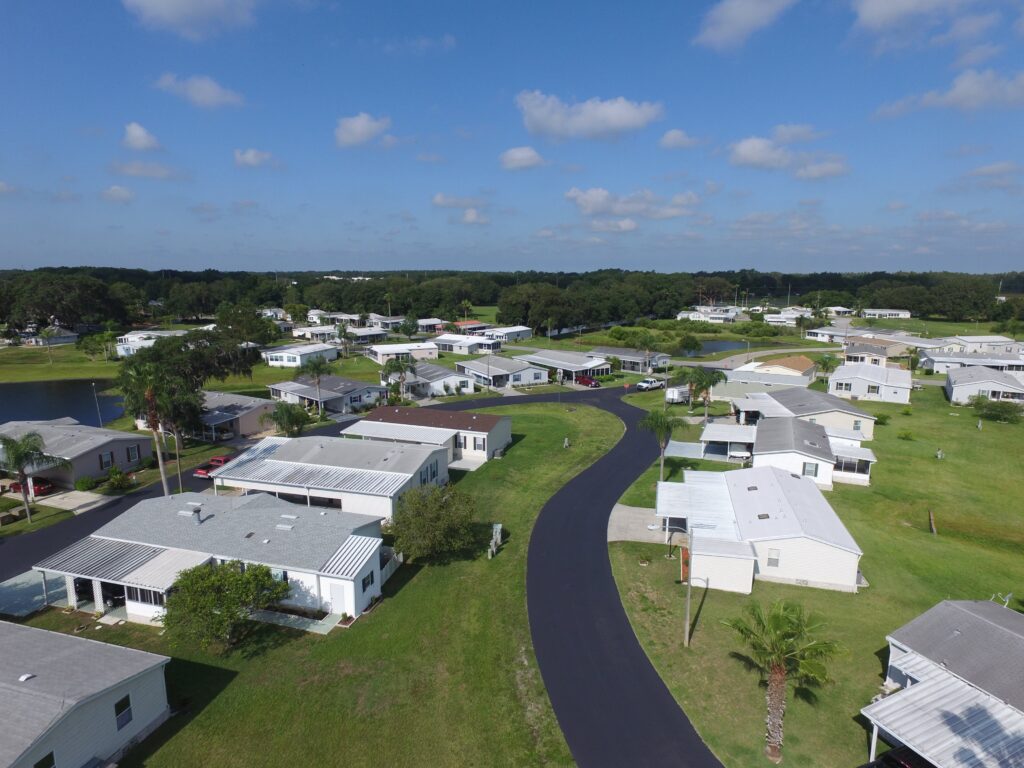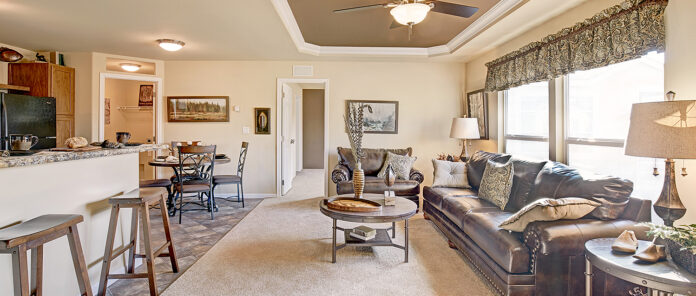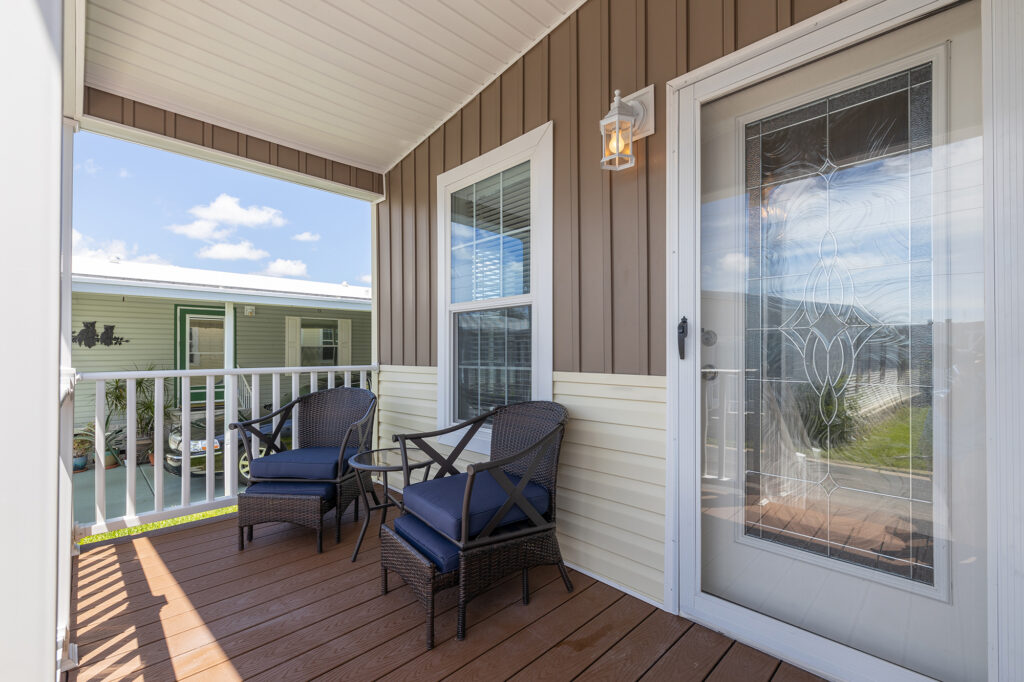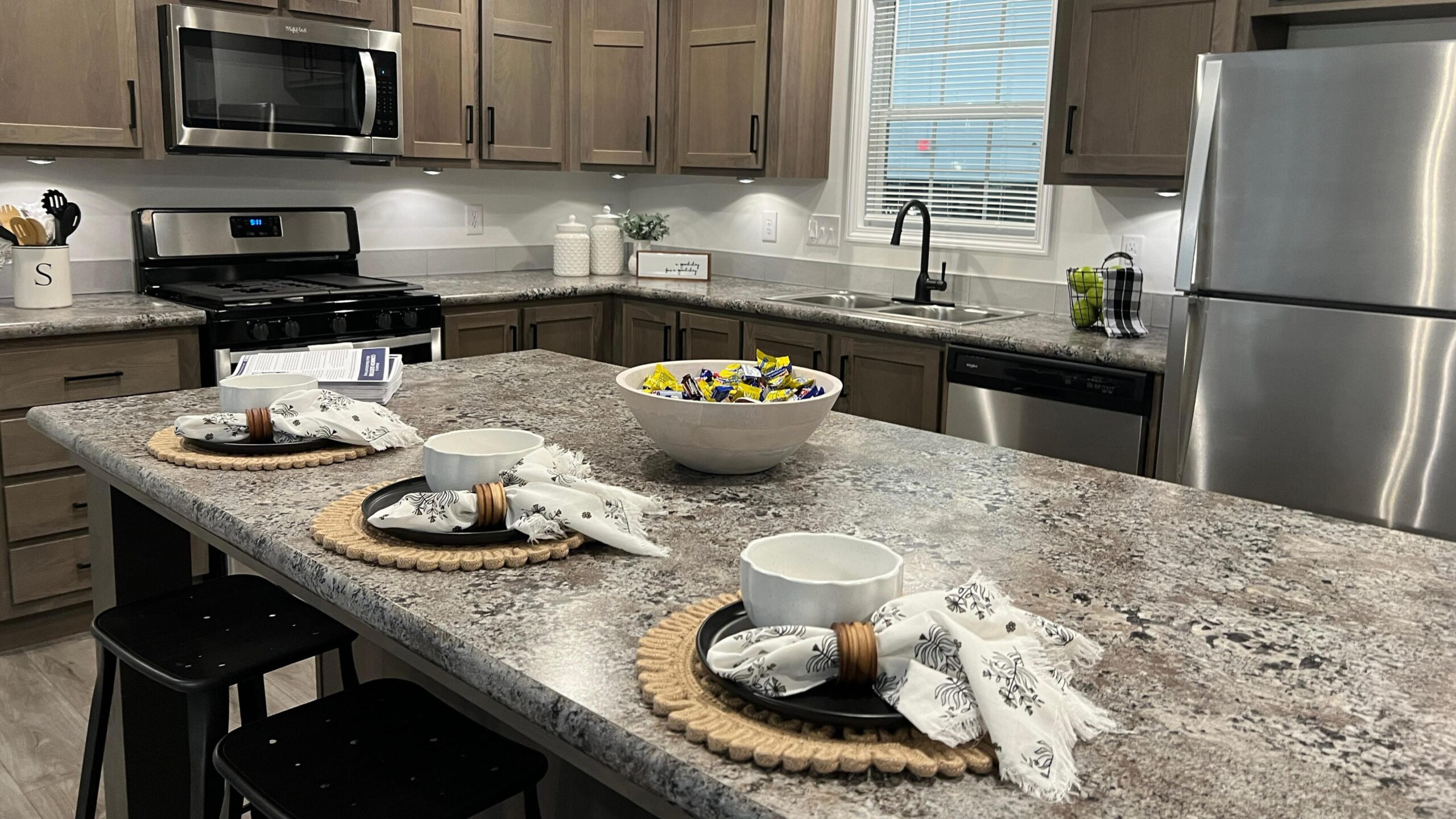We’ve talked before about mobile home manufacturers. They play a vital role in building and shipping today’s manufactured homes to home sites and communities across the country.
In fact, they’re such an important part of manufactured housing that some homebuyers go directly to the manufacturers to order new mobile homes. They also order customized manufactured homes that offer additional features.
And, some communities rely on the manufacturers for their new home shipments, too. But, not every home builder offers their homes for sale in every state in the U.S.
So, the MHVillager has assembled this handy guide so that you can see which manufacturers sell mobile homes in your state. These manufacturers sell their mobile homes through sales centers that are located in various states across the country.
This list is made up of some of the top manufacturers in manufactured housing today and where their sales centers are located based on publicly available information.
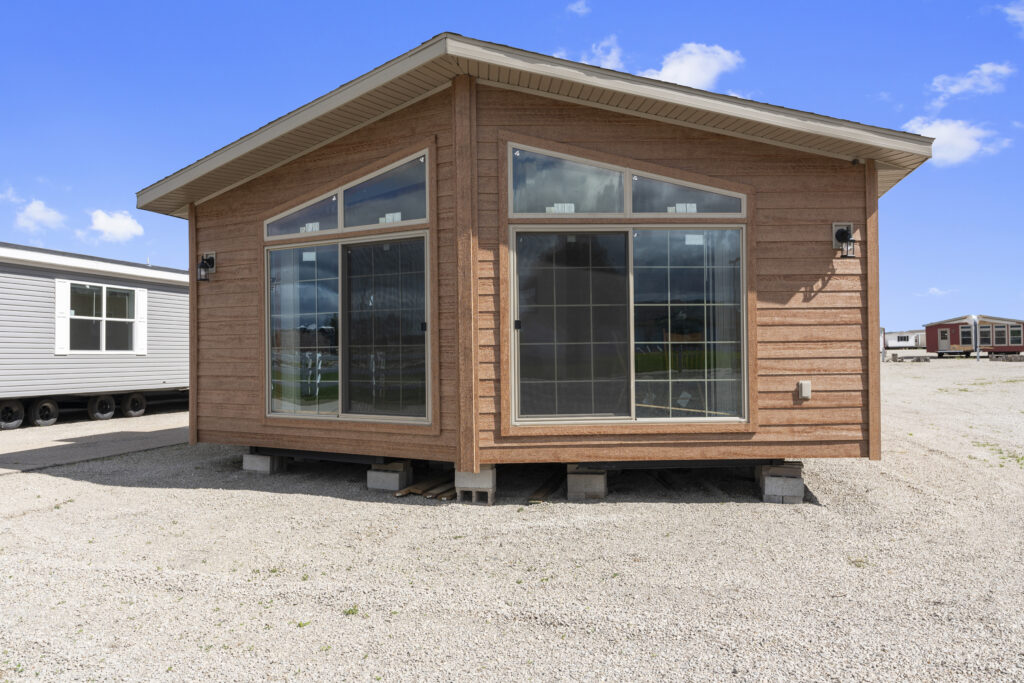
Keep in mind that many of these manufacturers offer new manufactured homes directly through MHVillage. If you visit our Manufactured and Mobile Home Dealers page, you can find the closest dealers near you that offer manufactured homes from home builders.
Adventure Homes
Dream it. Design it. Build it. Love it. That’s the motto that Adventure Homes swears by.
Headquartered in Northeastern Indiana, Adventure Homes ships and sells manufactured homes throughout the Midwest and parts of the South.
So, if you’re in Colorado, Illinois, Indiana, Iowa, Kansas, Kentucky, Michigan, Minnesota, Missouri, Montana, Nebraska, North Dakota, Ohio, Pennsylvania, South Dakota, Tennessee, West Virginia, Wisconsin, or Wyoming, Adventure Homes is at your disposal.
Cappaert Manufactured Housing
Cappaert Manufactured Housing is another manufacturer with sales centers throughout the South. This makes them another great example of a regional manufacturer for factory-built homes.
While they’re based in and operate out of Mississippi, you can also find Cappaert-affiliated sales centers in Alabama, Arkansas, Florida, Georgia, Kansas, Louisiana, Tennessee, and Texas.
Cavco Industries
This is a name you’ll hear thrown around a lot when it comes to manufactured housing. Not only does Cavco Industries operate sales centers in various states, but they also operate various other manufacturer brands across the country.
We’ll get into some of those in just a minute. But, if you’re looking for a Cavco-specific sales center, then you’ll find them in Arizona, New Mexico, and Texas.
Chariot Eagle
Chariot Eagle is the first of many Cavco brands that you’ll see on this list. They’re based out of Ocala, FL and are another regional operator similar to many others here. The majority of their sales operations are based in Florida, but they serve other states as well.
Specifically, if you’re in Alabama, Delaware, Florida, Maine, Maryland, Minnesota, Mississippi, New Jersey, New York, North Carolina, Pennsylvania, South Carolina, or Tennessee, you’ll have a Chariot Eagle sales center at your disposal.
Clayton Homes
It’d be easier to list the states where Clayton Homes doesn’t operate. This is because Clayton Homes is one of the biggest manufacturer in the United States when it comes to manufactured homes.
In fact, unless you live in Connecticut, Iowa, Massachusetts, New Jersey, or Rhode Island, you have a Clayton sales center in your state in the mainland U.S.
Commodore Homes
Commodore Homes is another manufacturer with wide reach across the country. Like Cavco, they operate many brands under the Commodore name.
You can find Commodore Homes sales centers in Connecticut, Delaware, Illinois, Indiana, Iowa, Kansas, Kentucky, Maine, Maryland, Massachusetts, Michigan, Minnesota, Missouri, Montana, Nebraska, New Jersey, New Hampshire, New York, North Carolina, North Dakota, Ohio, Pennsylvania, Rhode Island, South Carolina, South Dakota, Tennessee, Vermont, Virginia, West Virginia, Wisconsin, and Wyoming.
Destiny Home Builders
Destiny Home Builders has built and sold manufactured homes within the southern United States since 1978.
In fact, if you live in Alabama, Florida, Georgia, or South Carolina, you can find a Destiny sales center near you if you want to go with a regional provider.
Fairmont Homes
Fairmont Homes is another manufacturer that operates primarily in the Midwest. While they’re one of a few manufacturers that also operate in Canada, their primary operations are in the United States.
You can visit a Fairmont Homes sales center if you live in Illinois, Indiana, Iowa, Michigan, Missouri, Ohio, Pennsylvania, South Dakota, Wisconsin, or West Virginia.
Fleetwood Homes
Fleetwood Homes has been in operation for over 55 years, and is another Cavco brand. Like many of the other manufacturers on this list, each Fleetwood plant builds homes for locations in its geographical region. So, a Fleetwood plant in Georgia would build for their sales centers in Georgia. You can browse Fleetwood manufactured homes for sale near you if you live in California, Georgia, Idaho, Oregon, Tennessee, Texas, and Virginia.
Friendship Homes
If you live in Minnesota, Montana, North and South Dakota, or Wisconsin, then Friendship Homes sales centers are another option at your disposal. Some fun facts: Friendship Homes is based out of Minnesota, sells manufactured homes in Canada, and has been a Cavco brand since 2015.
Jacobsen Homes
Jacobsen Homes is another brand that’s been around for over 60 years (since 1959, in fact). Based in the Tampa Bay area, they’re rather unique in that they only sell manufactured homes in the state of Florida.
It’s easy to see why: Florida is by far the hottest market for manufactured homes in 2022. So, if you live in the Sunshine State and want to buy a mobile home of your own, Jacobsen Homes is a local option to consider.
Legacy Housing
Legacy Housing is another manufacturer of factory-built homes that can be considered one of the biggest. Operating across the Southeast and Southwest, they’re another name that you may hear frequently.
If you’re looking for a Legacy Housing sales center, look in Alabama, Arizona, Arkansas, Florida, Georgia, Illinois, Louisiana, Missouri, New Mexico, North Carolina, Oklahoma, South Carolina, and Texas.
Palm Harbor Homes
Palm Harbor Homes has manufactured home sales centers all over the country. If you’re in Arizona, California, Florida, Georgia, Montana, North Carolina, New Mexico, Nevada, Oklahoma, Oregon, South Carolina, Tennessee, Texas, Virginia, or Washington, you can look to Palm Harbor Homes for a sales center near you.
Scotbilt Homes, Inc.
Another well-known manufactured home builder in the South (Alabama, Florida, Georgia, Louisiana, Mississippi, and the Carolinas to be exact), Scotbilt Homes is a relatively newer manufacturer. They were founded in 2004, and in just a short time have become a major manufacturer known by many. Recently, they became a member of the Skyline Champion family. Speaking of which…
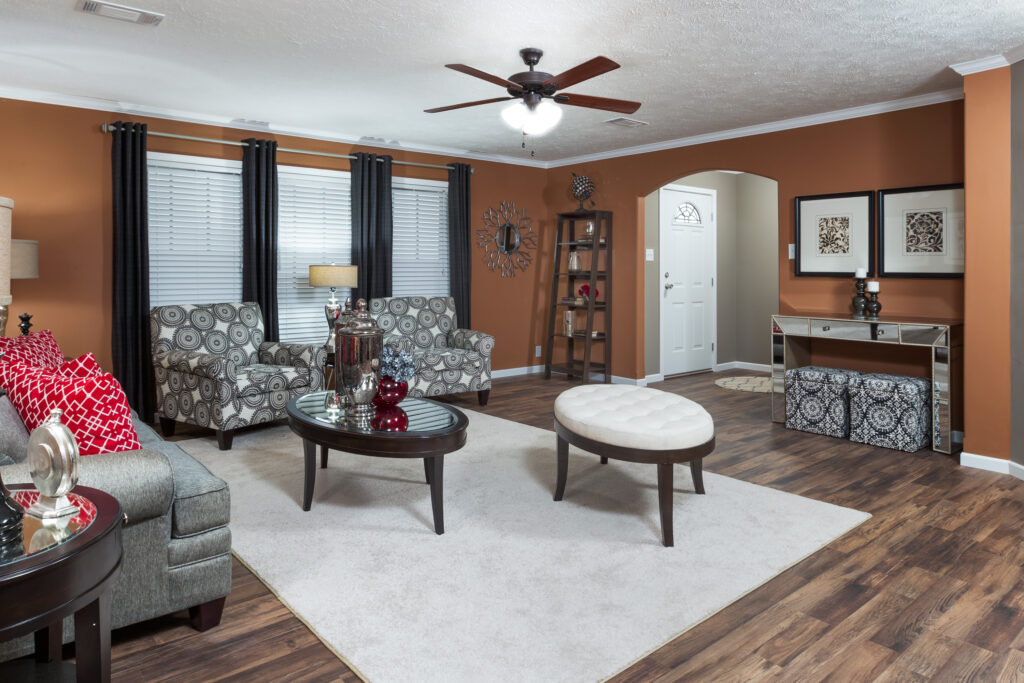
Skyline Champion
No list of manufacturers would be complete without including Skyline Champion. A highly-recognizable brand that comprises Skyline Homes and Champion Home Builders, they’re yet another builder with a high reputation.
For homeowners-to-be in Florida, Georgia, Louisiana, North Carolina, Oklahoma, and Texas, a Skyline Champion sales center is not that far away.
Sunshine Homes
Rounding out our list is Sunshine Homes, which has operated since 1971 in the South and Midwest. If you’re looking for a new factory-built home in Alabama, Arkansas, Florida, Georgia, Illinois, Indiana, Kansas, Kentucky, Louisiana, Mississippi, Missouri, Oklahoma, South Carolina, Tennessee, or Texas, Sunshine Homes is an option for you.
Like we said, this isn’t an exhaustive list of every single manufactured home builder out there. Rather, this is a list of some of the most common ones you’ll find, and which states they operate in. Manufacturers are always growing into new markets, so this list may change along with market conditions. So, if you don’t see your state serviced by your favorite manufacturer, keep an eye out for updates.
Don’t forget: you can also browse MHVillage for new and pre-owned manufactured and mobile homes near you.


